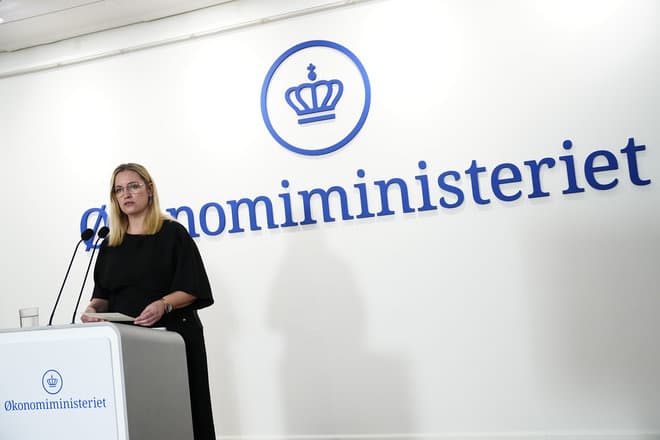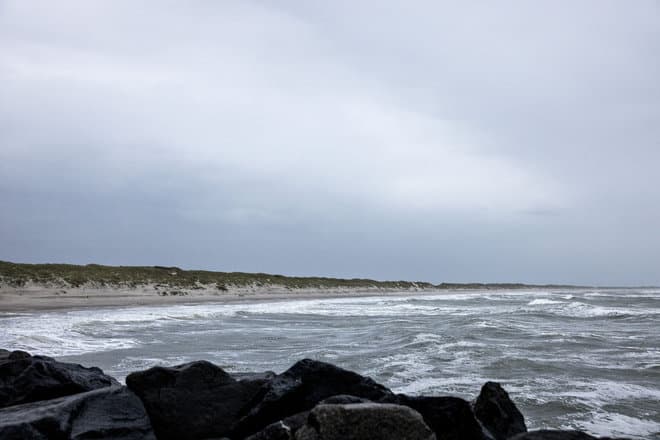
Regulatory simplification in the EU. This is the most important headline when Denmark hosts a meeting of EU ministers of economy and finance on Friday and Saturday, says Minister of Economy Stephanie Lose (V).
- I look forward to welcoming my colleagues from the 26 other EU countries to Copenhagen. Because it is our opportunity to set our own agenda from the Danish EU presidency side, says Stephanie Lose.
Prior to the meeting, Denmark has estimated that future EU legislation could collectively entail additional costs of up to 124.2 billion euros per year for companies and public authorities throughout the EU.
Therefore, less bureaucracy is an important issue for Denmark during the EU presidency:
- Our overriding focus will be the need to reduce burdens from EU regulation. It must be simpler. Both when looking at existing regulation, but also when looking ahead to future regulations, says Stephanie Lose.
She hopes to gather support for much stronger supervision of the burdens that come with new EU legislation in the future.
- It is the responsibility of the EU Commission to include impact assessments when they propose new legislation. But they do not always live up to this. And it is not always the case that the impact calculations are accurate when they are included, says Stephanie Lose.
Want to start the discussion
The Minister of Economic Affairs also points out that the burdens on companies and authorities may increase further when the co-legislators, which are the EU countries and the EU Parliament, also propose changes to the legislation in the negotiations on new regulations.
The Danish EU presidency ends at the turn of the year, and there is therefore a rush to achieve the goal of changes. According to Stephanie Lose, however, it is also important to start the important discussion.
- Now we are starting the discussion in Copenhagen. I hope that can form the basis for us to agree that there is a problem. That is the first step. And then I hope that we can return to it again during the Danish EU presidency to make some structural changes, so that in the future you get a better overview of the consequences of legislation. And a greater focus on that.
- I am not against rules from the EU. There are lots of EU rules with good purposes and lots of arguments for common rules. The challenge is just that the rules sometimes come with some really big burdens. We want a rigorous focus on how we can achieve the purpose of the legislation without a lot of burdens, says Stephanie Lose.
She is pleased that the EU Commission has already started presenting proposals for regulatory simplification.
- This shows that the purpose of the legislation can be achieved in a different way than where it started. The ambition in the future must be to get it right the first time, says Stephanie Lose.
Impact assessments necessary
The fact that Stephanie Lose is putting the fight against administrative burdens and cumbersome regulations on the agenda is pleasing to Dansk Industri.
- Unfortunately, we are experiencing an EU that is far behind when it comes to making proper impact assessments before legislation is adopted. Most often, only a biased assessment is made by the Commission when a proposal is submitted, but after it has been through the negotiation mill in Parliament and the Council, it can look very different when it is adopted. And no one does follow-up impact assessments along the way, says DI's political director, Morten Høyer.
He points out that Denmark, with its presidency, has a unique opportunity to get the Council to take responsibility for making impact assessments of amendments during the negotiation process, as it is at least as important for reducing hassle and burdens.
- Adopting legislation without impact assessments is equivalent to swinging to the right without looking over your shoulder first. Often you have no idea how it will affect companies, which is why we have seen the expensive and cumbersome EU legislation, says Morten Høyer.
/ritzau/esl
Text, graphics, images, sound, and other content on this website are protected under copyright law. DK Medier reserves all rights to the content, including the right to exploit the content for the purpose of text and data mining, cf. Section 11b of the Copyright Act and Article 4 of the DSM Directive.
Customers with IP agreements/major customer agreements may only share Danish Offshore Industry articles internally for the purpose of handling specific cases. Sharing in connection with specific cases refers to journaling, archiving, or similar uses.
Customers with a personal subscription/login may not share Danish Offshore Industry articles with individuals who do not themselves have a personal subscription to Danish Offshore Industry.
Any deviation from the above requires written consent from DK Medier.





















